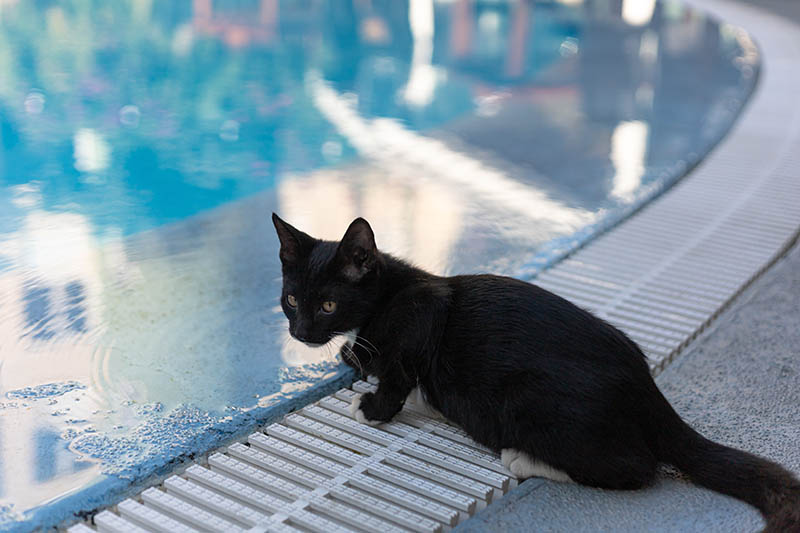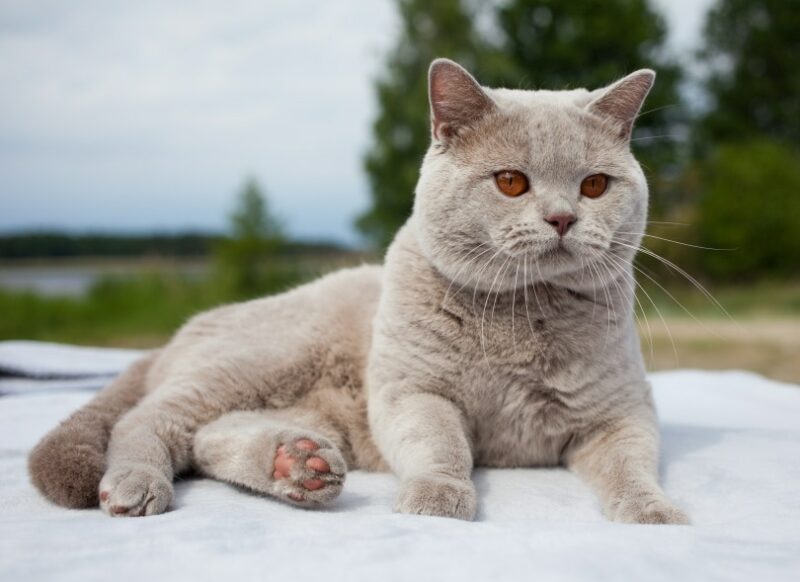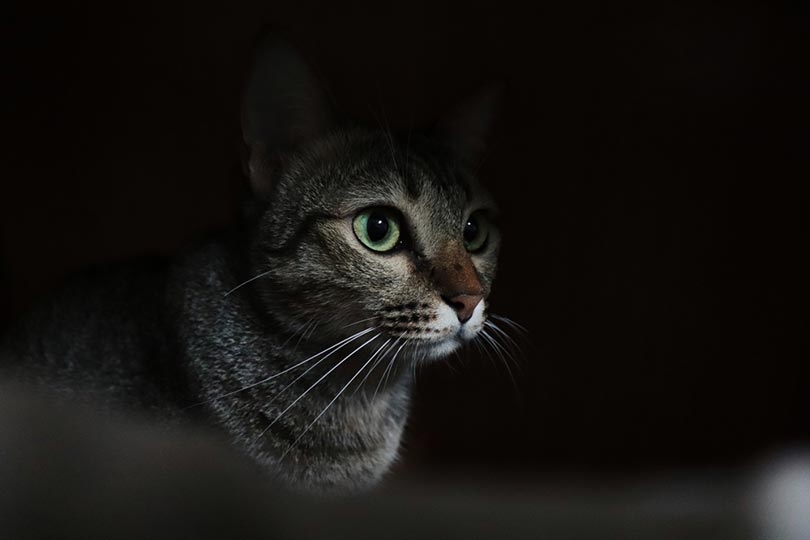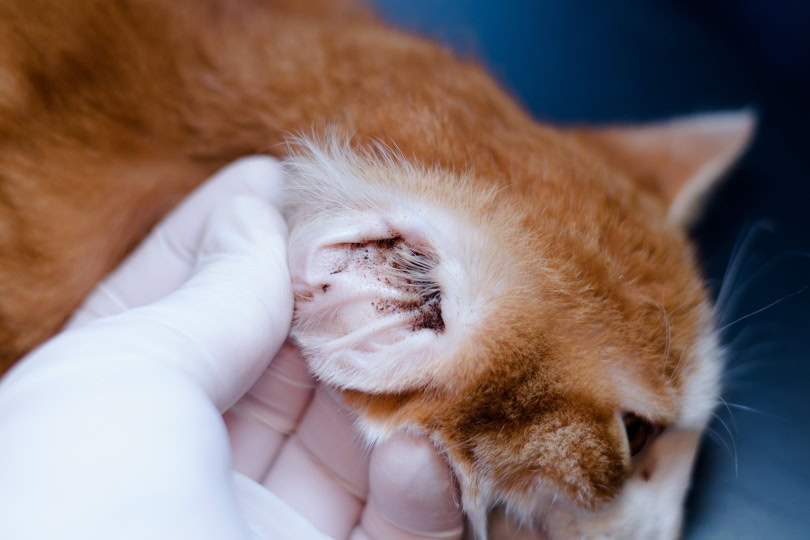VET APPROVED

The information is current and up-to-date in accordance with the latest veterinarian research.
Learn more »It’s no secret that cats typically aren’t big fans of water, so most cats aren’t going to try to join you for a swim in your swimming pool. That doesn’t mean your cat won’t interact with your pool, though.
If your cat is allowed in the area of your pool, it may pose a major temptation to a thirsty cat on a warm day. If you’re familiar with the upkeep of swimming pools, then you know that pools either have chlorine or salt added to them to keep the water clean. Are these additives safe for your cat to drink, though? While small quantities likely won’t do harm, you shouldn’t let them drink from the pool regularly. Keep reading for more information.

Is Pool Water Safe for Cats?
In small quantities, pool water doesn’t pose a notable threat to your cat. That means that if your cat gets a sip here and there, there aren’t any major concerns. However, your cat shouldn’t be allowed to freely drink the pool water.
As with everything, the dose makes the poison. The good news is that chlorine and salt levels are typically low enough in swimming pools to not cause issues if consumed in small amounts, but if your cat routinely drinks from the pool, then you need to put a stop to the behavior.
On top of concerns with your cat regularly drinking pool water, cats have a reputation for not drinking enough water. This means that if your cat is seeking out the pool water, they likely aren’t being provided with enough clean water otherwise, or that there is a medical condition making your cat more thirsty than usual. Your cat should always have access to fresh, clean water, whether indoors or outdoors.
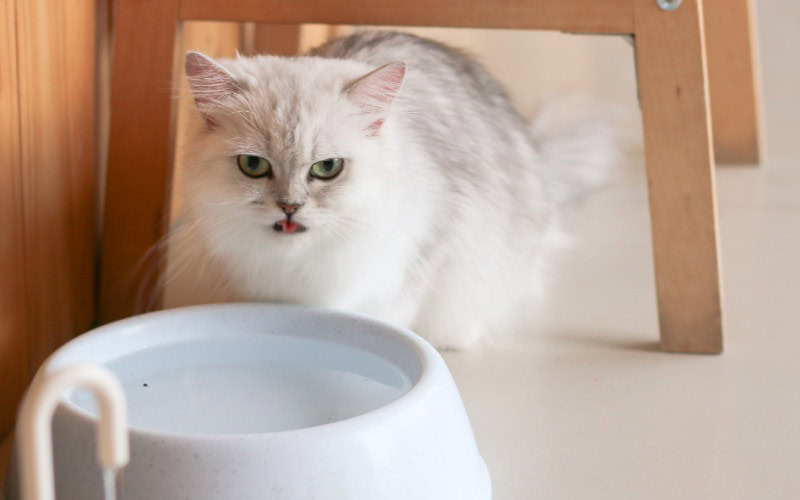
Dangers of Consuming Chlorine
If your cat consumes large quantities of chlorine-containing water, they may develop some uncomfortable side effects. The most common issues with chlorine water are associated with topical exposure, so cats that swim in chlorinated pools may develop skin irritation, flakiness, and dryness, and irritation to the eyes and mucus membranes. Cats that drink a lot of chlorinated water may develop nausea, vomiting, diarrhea, and abdominal pain.
If your cat manages to access pool chlorine with more than 10% concentration or in its whole form, you need to immediately call a pet poison control hotline while you drive to the nearest emergency veterinarian. Direct chlorine consumption can be extremely dangerous and deadly.
Dangers of Consuming Saltwater
Cats can tolerate a higher dose of salt than dogs and humans can, but drinking saltwater should be discouraged. The good news is that occasional saltwater consumption isn’t likely to cause a problem for your cat. In large quantities, saltwater consumption can increase thirst and urination, as well as cause salt poisoning.
Salt poisoning can cause vomiting, diarrhea, abdominal pain, excessive thirst, and excessive urination in mild cases. In severe salt poisoning cases, your cat may experience seizures, tremors, coma, and death.
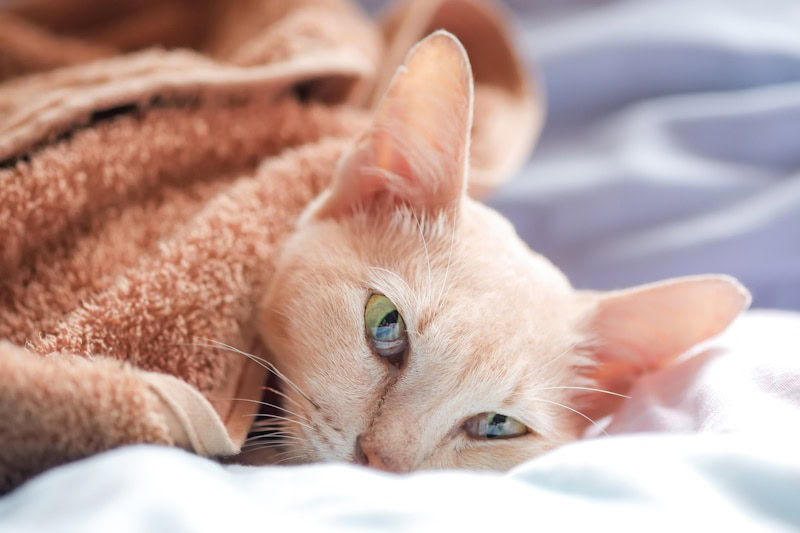

In Conclusion
In general, a little drink of pool water from time to time isn’t going to be a problem for your cat, but it may indicate that your cat doesn’t have enough access to drinking water. It’s best to discourage your cat from drinking pool water. If your cat drinks water from your pool, keep an eye out for symptoms associated with chlorine water or saltwater consumption. If your cat consumes large quantities of chlorinated water or saltwater and is experiencing negative side effects, you need to contact a vet as soon as possible and have your cat evaluated.
See Also:
- Can Cats Drink Alkaline Water? Vet-Approved Facts & FAQ
- Can Cats Drink Tuna Water? Vet-Approved Health & Nutrition Guidelines
Featured Image Credit: Arisani, Shutterstock
